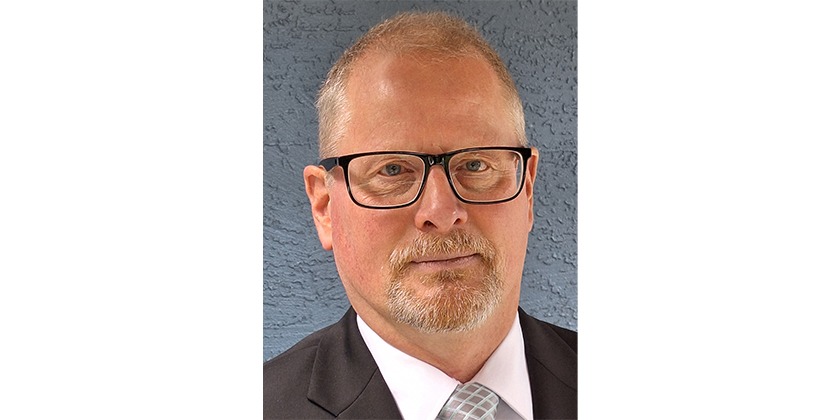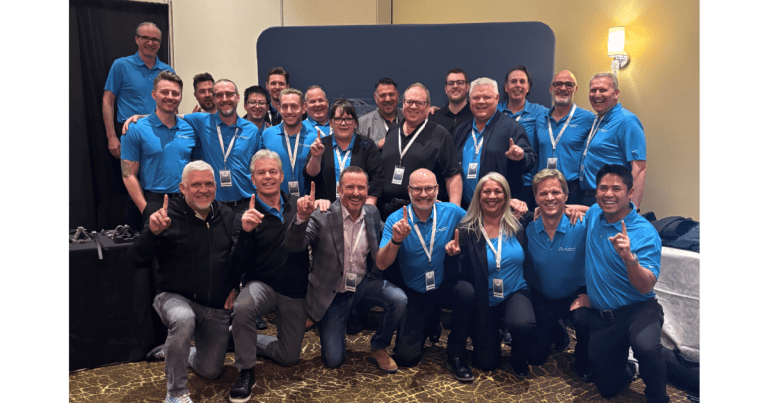Rules That Help Me Fix Things

April 23, 2025
By Keith Sones, seasoned utility industry executive
“You will be swallowed alive,” Doug told me emphatically.
“No, they’ll be fine. They know they need the power and they’ll come around to seeing it our way,” I replied defensively.
My boss looked at me with that contorted squinty stare of his, his eyes telling me clearly ‘you gotta be kidding.’ Realizing he wasn’t getting through to me, he said plainly “Just make sure you have a back up plan.” With that, the conversation was over.
I was in the recently created role of System Planning Project Manager, a fancy title that really meant I had to convince a bunch of people that didn’t want any powerlines or other utility infrastructure within 50 miles of their view, to accept them into their back yard, in some cases literally. In this case, it was a power substation that we wanted to build close to a picturesque golf course community which was experiencing significant growth. Several residents had already given me a piece of their mind, telling me unequivocally that we would build that substation ‘over their dead bodies.’
It was a battle, but I was confident I’d win them over. A town hall style meeting was scheduled to allow the residents and other interested parties to better understand the project, know why we were building it and ask their questions. Would it be noisy? What would it look like? How dangerous was it? I had a plan to counter all of their concerns and thought that by the end of the night we would all be friends.
I’ll save you the details of the meeting. It was a disaster. No matter what I said or how much I explained, they didn’t listen. They yelled, called me a liar, threatened to line up their lawyers and sue. Over 300 people in a rented hall that wanted only to see the project canceled and me to just go away.
The following Monday I was back in Doug’s office, complaining about the meeting and trying to figure out what went wrong. As usual, he patiently heard me out, listened to me denigrate myself, and then, when my defeated silence permitted, offered me wisdom. “Keith, you did very well at that meeting. Our people tell me you were articulate, warm to the crowd and explained the situation brilliantly. All things considered, it could have been a lot worse.” He paused, considering his next words. “You only made one mistake.”
As deflated as I felt, my ears perked up. “What was it?”
Doug looked at me intently, like I was the only person in the world. “You didn’t understand the difference between what you want to be true and what is true. You wanted so badly to have them see things your way you forgot what they had already told you, over and over. No one was going to change their minds that night. No one.”
I processed his words. He was right. He was so right. I replayed the many individual conversations I’d had with the residents at their kitchen tables, in coffee shops and office meeting rooms. And I’d heard them say it. ‘No. Forget it. Not going to happen. Find another way.’ Young and old, new arrivals and original settlers, businessmen and retirees. All of them had said the same thing. I had merely failed to listen.
That experience occurred more than 20 years ago and the lesson that Doug so graciously taught me became the first in a series of rules I use to guide myself when it comes to people. Over the years I’ve picked up others from a variety of sources, all of them time tested and validated, for me at least. Each one as true a thousand years ago as it will be tomorrow. It’s a high bar to have a rule accepted into my little bag of tricks, which is why there are only a few of them. They can’t ever be wrong, or they get thrown out. They have saved me more times than I can count, each time giving me the confidence that while the specific outcome of any particular situation may be unknown, the general direction is blindingly clear.
Here they are. If any of them are useful to you, give Doug a silent thank you.
- Experience is a wonderful teacher. Listen to it. Our brains are not designed to remember all of the details we gather everyday, and thank goodness for that. You might not be able to remember where you put your car keys this morning but you also don’t have to have your mind cluttered with every grocery shopping list you ever remembered. Instead of recalling the specifics, we are programmed to draw on the emotions, warnings, successes and failures we have encountered. Too vague? OK, here are a few examples you might better illustrate the point:
- A dog growls at you while his tails is wagging excitedly. Very likely he won’t bite.
- You get a sick feeling in your stomach when the plumber says he won’t charge you very much. Have him put the price in writing.
- A song comes on the radio and as soon as you hear the first few notes you are instantly transported back in time to that fabulous time with your friends. Enjoy the memory.
- A politician or boss or intimate partner promises to do things differently next week than he did last week. Assuming he is telling the truth is irrational, no matter how much you want his pledge to be true. He won’t change.
This last point is particularly important. Here’s why. If they have values, one believes they will act accordingly. So, if he changes, it’s a demonstration that what he did last week was wrong (did you get an apology?) or that his values can be changed on a dime, which means they aren’t values at all. As the saying goes, talk is cheap.
- Understanding what’s important to a person is easy. Just watch what they do. All of us will do what is most important to us first. It might be in the moment or over the course of a lifetime, but our priorities will always be on display.
This rule becomes very complicated very quickly as soon as I try to understand WHY someone does a certain thing, so I no longer worry about their reasoning, only their action. They might be driven by greed, ideology, lack of confidence, religion, a need to prove themselves to their parents, love, or any of a thousand drivers. Who knows? I’d need ten life times of studying psychology to figure that out, but in the grand scheme of things, at least for me, it’s not important. What is critical is knowing what is important to them, since that is most likely to determine what they will do in any future situation. Will they get angry and yell? Be calm in the face of danger? Lie to you? Have your back? Work hard? Slack off? If you want to know, disregard everything they say. Just watch what they do.
- Everything changes. Except people. During the course of life, things change all the time. Your family moves and you have to make new friends. You meet someone and fall in love. You get a new job. A new baby. You car breaks down. Mom dies. You win the lottery. Nothing stays the same. Except people.
Once a person reaches adulthood, they will live their lives based on a set of principles, known only to them. They won’t tell you what their internal rules are, mostly because even they don’t know what they are. Of course we are all shaped by experience and education, which changes our views on certain things. A liberal young woman who wants to plant trees and clean up beaches can become a conservative older woman focused on debt reduction and growing industry. In both cases she is still trying to make the world a better place. That jerk of a boss you have? Very likely the school yard bully as a kid. An elderly gent once told me “There is no school to become a grumpy old man. They’re just grumpy young men that grew old.”
In spite of it sometimes seeming confusing, this rule helps me a lot. Business people, family members and politicians alike will show you who they are on a regular basis. Believe them. They might buy a better suit or tone down the rhetoric a bit, but they will be the same person tomorrow that they were yesterday.
- Motivation matters (also known as the “only take advice from people with skin in the game” or the “large organization” rule). We all get used to things being a certain way. Breakfast at seven. The neighbour’s dog barks at night. Recycle your bottles. Throw trash out the car window. Abuse your wife on Saturday night. Whatever a person does on a regular basis, it’s very unlikely they will voluntarily change. It takes a lot of work, compromise, changing your mind, in some cases they would have to become a very different person. It probably won’t happen.
Have you ever wondered why it’s easier to get a problem fixed by a small company than a large organization or government agency? The answer is surprisingly simple. The small company owner understands that you as a customer may well take your business somewhere else if they don’t fix your problem. He or she sees a direct impact to their revenue and therefore profit. You also might tell others not to use their business if you have a bad experience. For better or worse I always check online reviews these days. They are strongly motivated to keep you happy.
In a large institution, the customer service person you deal with gets a paycheque whether they solve your problem or not. They have no line of sight between your issue and the impact to the company. They are far less motivated to solve your problem, especially if it takes extra work. It’s the same reason governments still use fax machines and big companies use endless menus on voicemail that frustrate you and don’t help. There is very little reason to change.
These rules have been and remain helpful for me to understand why people do what they do. Do they help fix the problems? Not usually, no. They just let me make better decisions by living in a world of reality, instead of thinking my fantasies are actually real.
Do I have other rules that help me fix things? Yes, but that’s a story for next time.








